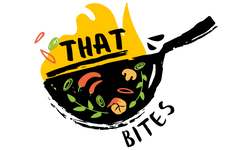As someone who handles food, particularly with a California food handler’s license, whether you’re a chef, waiter, or even a clerk in a grocery store, it’s crucial to understand the responsibilities that come with your role in maintaining public health and safety.
In this article, we will know the main responsibilities of every food handler and provide valuable insights on how to prevent illnesses caused by improper food handling.
A Better Understanding of a Food Handler
Professionals with California food handler’s license are always responsible for maintaining food safety and avoiding any potential health hazards. A better understanding of a food handler’s role will help you deliver safe, high-quality products while minimizing risks.
Remember that educating yourself is key to maintaining high standards in food handling, and you can never go wrong when you obtain your California food handler’s license.
What Are the Main Responsibilities of a Food Handler?
Maintaining proper hygiene, following food safety regulations, and preventing cross-contamination are crucial. This will ensure the entire quality of the dishes served. For you to be able to do this. You must always wash your hands before handling food and touching raw ingredients like meat or eggs.
Regularly sanitize and clean all surfaces and utensils that come into contact with food and store ingredients at appropriate temperatures in properly labeled containers. Additionally, ensure you’re familiar with local health codes and guidelines to guarantee compliance with food safety standards.
Another essential aspect of your responsibilities is staying up-to-date on allergen information and effectively communicating it to customers when necessary. This ensures that those with allergies can safely enjoy their dining experience without risking their health.

Furthermore, be vigilant about monitoring expiration dates on perishable items so that you can promptly discard anything past its prime. By faithfully executing these duties, you’ll create a safe environment for patrons and contribute significantly to the reputation and success of the establishment where you work.
Illness
You’ll need to be extra cautious when preventing the spread of illness when working with food since even a minor slip-up can put customers at risk and destroy your establishment’s reputation. Maintaining the right personal hygiene is one of the most important aspects of avoiding illness. This includes washing your hands frequently and properly.
You should also keep your hair restrained or covered without touching your face or other body parts while handling food. By strictly adhering to these guidelines as a food handler, you’ll play a vital role in safeguarding public health and upholding your establishment’s standards for quality service.
Personal Hygiene
Maintaining good personal hygiene when working in the food industry is important because even the smallest lapse can put people’s health at risk and tarnish your establishment’s reputation.
Individuals with California food handler’s license must adhere to strict guidelines for cleanliness and grooming. This includes washing your hands frequently, particularly before handling food, after using the restroom, touching your face or hair, and after handling raw meat or poultry.
You should also keep your nails trimmed and clean to prevent bacteria from adding up under them. By practicing good personal hygiene consistently in the workplace, you’ll help ensure the safety of the customers you serve and uphold a high standard of quality within your establishment.
Hand Washing
Thorough handwashing is crucial to maintaining a hygienic environment in the food industry. You are not only putting customers’ health at risk. Your responsibility to wash your hands thoroughly and frequently to prevent the spread of harmful bacteria, viruses, and other contaminants.
You should also avoid touching your face or hair while working with food – if you do so inadvertently, be sure to wash your hands immediately. By practicing proper hand hygiene religiously, you’ll contribute significantly to keeping the kitchen environment safe and contamination-free.
Frequently Asked Questions
These are the common questions for most professionals with California food handler’s licenses.
What are the legal requirements and certifications needed for a food handler?
You’ll need a food handler’s permit obtained through a certified course to meet legal requirements. Requirements vary by location, so research your area’s regulations. Maintain proper hygiene and follow food safety guidelines.
How can food handlers ensure proper food storage and temperature control to prevent contamination?
To ensure proper food storage and temperature control, always store raw meats separately, monitor temperatures regularly, use airtight containers, label foods with dates, and follow the FIFO (first-in-first-out) method.
Are there specific guidelines for food handlers regarding allergens and dietary restrictions?
Yes, food handlers must be aware of allergens and dietary restrictions. You should know common allergens, communicate with customers, avoid cross-contamination, properly label and store ingredients, and inform staff about menu items.
How can food handlers effectively communicate with their team to ensure food safety and quality throughout food preparation?
To effectively communicate with your team, always share crucial food safety information, discuss potential risks, and address concerns promptly. Encourage open dialogue, delegate tasks clearly, and foster a collaborative environment focused on quality.
Conclusion
Every food handler plays an important role in ensuring the safety and well-being of your customers. It’s essential to adhere to all food safety regulations and maintain proper personal hygiene to prevent contamination.
Remember that your main responsibilities involve preventing illness, maintaining cleanliness, and practicing rigorous hand washing. By doing so, you not only protect others but also contribute to creating a positive dining experience for everyone involved.


